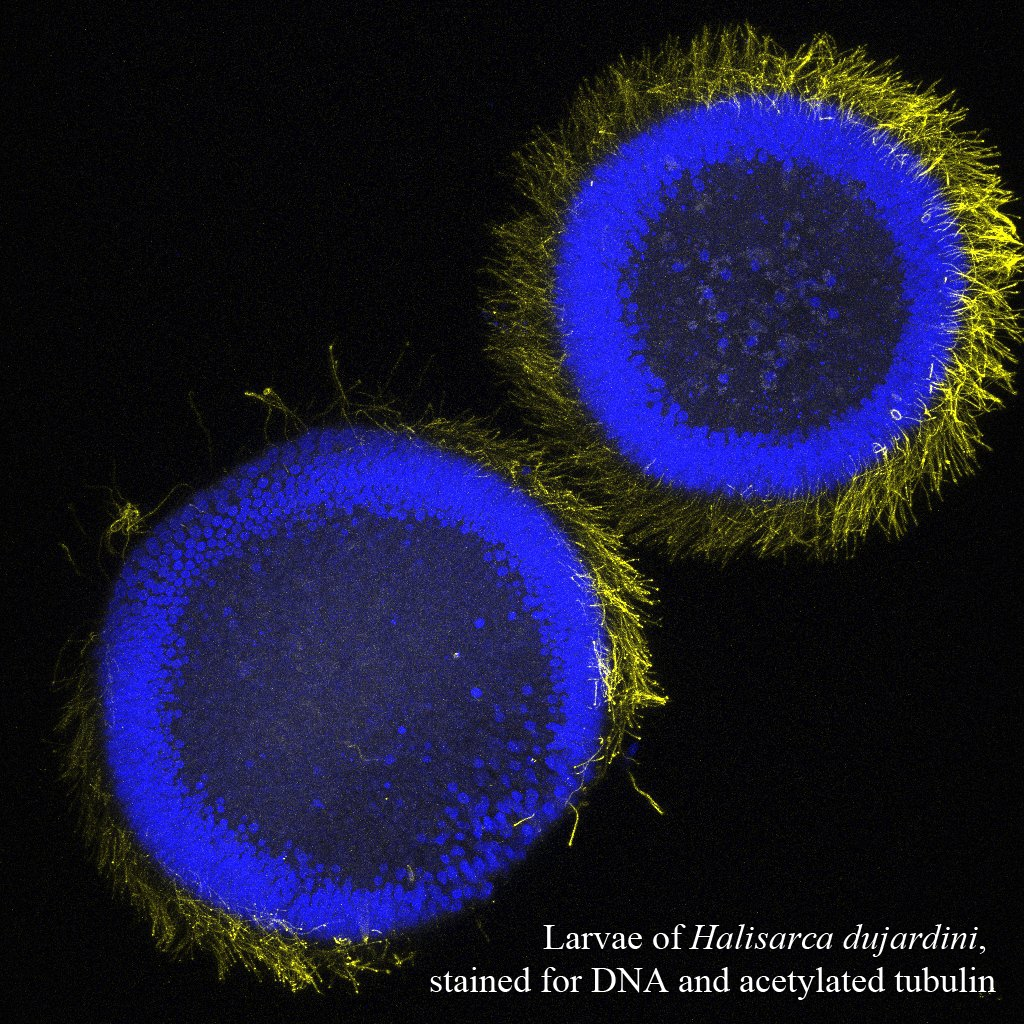InScience: New family of invertebrate proteins discovered
Russian scientists have described a previously unknown family of proteins that is common among invertebrates. It is likely that these proteins are involved in a process of energy exchange that is important for the transformation of larvae into their adult form. This discovery will help to restore the evolution of multicellular organisms.
The research findings are published in the journal Open Biology.
Sponges are one of the earliest branches in the evolution of multicellular animals. The life cycles of these invertebrates are very diverse, and their regenerative capability is almost limitless. As it matures, a mobile larva goes out into the environment, settles on a substrate, attaches itself and begins to turn into a mature sponge. The stages of development are well known, but the biochemistry of this process, especially the nuances of energy exchange, is still unclear.

In the new study, the scientists observed H. Dujardini sponges, which they had gathered in the White Sea and then kept in aquariums. They transferred the larvae to artificial seawater that was calcium-free and, by centrifugation, separated them into cells. They then extracted the proteins from the flagellate cells, the structure of which they determined by means of mass spectrometry and the genome sequence by means of sequencing. Ilborin was found to be among them. The scientists also carried out a computer analysis of homologous proteins found in various animals and derived from an ancestor these proteins had in common with ilborin.
It turned out that ilborin consists of two domains. One is responsible for the binding of calcium ions and is found in many proteins that are sensitive to the level of this metal in a cell. The other is often present in enzymes that are able to accelerate chemical reactions and participate in metabolism. Ilborin can interact with adenosine triphosphoric acid (ATP), a universal source of energy. Comparing the data on which larval cells the protein is located in and what functions it can perform, the scientists assumed that it probably participates in energy metabolism and is involved in the metamorphosis of sponge larvae.
It is still unclear what specific role the novel protein plays in energy metabolism and how it regulates the binding of calcium ions. The wide distribution of ilborin homologues among invertebrates and its large amount in sponge flagellate larval cells suggest that it is important in this process. In the future, we hope to clarify its functions.
Ilya Borisenko, Assistant Lecturer in the Department of Embryology

